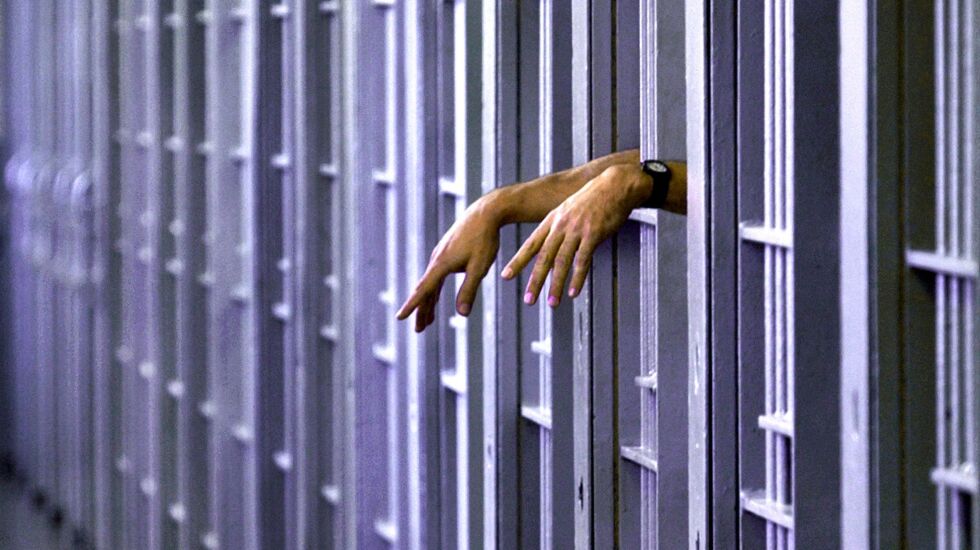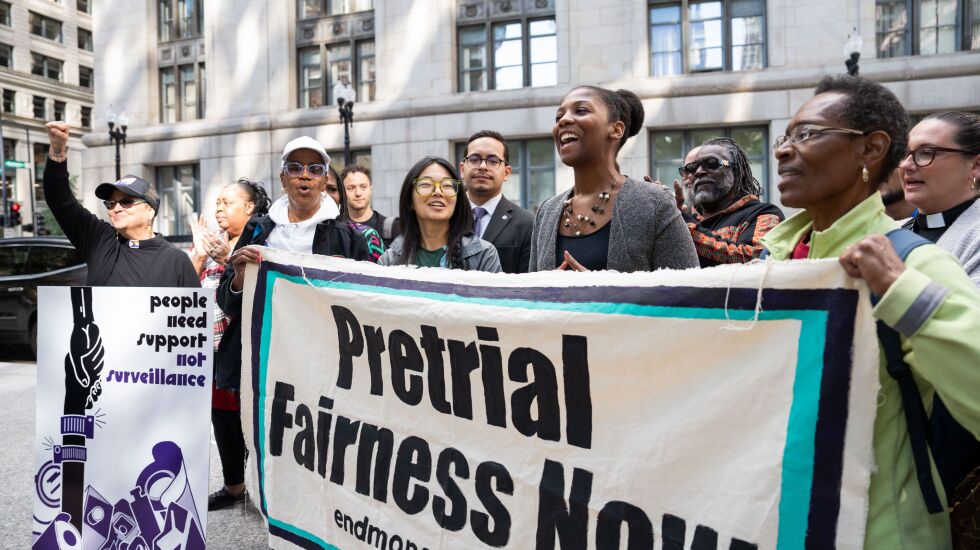
Court officials across the Chicago area say they’ll be ready when Illinois becomes the first state in the nation to eliminate cash bail on Monday, but that doesn’t mean some are any less concerned about a law they once decried as a threat to public safety.
“We’re going to try to make it work,” said McHenry County State’s Attorney Patrick Kenneally, a vocal critic of the state’s bail reform. “I think there is going to be a significant cost to this in terms of harm and misery caused.”
Cook County State’s Attorney Kim Foxx, a staunch supporter, acknowledges that people will be quick to blame the law when someone commits a violent crime after being released under the new system.
“Something will happen, we all know that, because we don’t have a crystal ball,” Foxx said recently. “We are dealing with humans and humans have a tendency to do human things, like mess up ... It will not tell the true story of the literally 90% of those who go out and nothing happens.”
Supporters note that cash bail was no guarantee that someone wouldn’t commit another crime. And with the new law, prosecutors will actually have more leeway to detain people before trial if they are found to be a risk to the public.
Most importantly, they say, people awaiting trial will no longer be held in jail — away from their families and jobs — simply because they cannot afford bail.
The key will be how prosecutors and other court officials use the discretion allowed them under the law.
The Pretrial Fairness Act lists crimes that are eligible for detention, from violent felonies and gun cases to sexual assaults and domestic attacks. It also allows someone to be detained if they are a flight risk.
But it will largely be up to prosecutors to decide when to actually seek detention, and then they will have to prove their case before a judge within 24 to 48 hours.
Researchers at Loyola University estimate roughly 37% of all arrests in Illinois – about 70,000 people — are at least potentially eligible for detention. They estimate as few as 15,500 could actually be detained.

Under the law, people charged with crimes will either be ordered held in custody while awaiting trial or will be released with conditions meant to ensure they return for court hearings and don’t commit new crimes.
Some supporters of the law say they have concerns it will lead to increases in jail populations and an over reliance on the use of the most restrictive conditions like electronic monitoring.
One official who spoke to the Sun-Times predicted their county could exceed jail capacity within months of the law going into effect, largely because judges would be “holding people they would have let out before when they posted bond.”
Such concerns may be unfounded.
Illinois may be the first to eliminate cash bail statewide, but the experience of other jurisdictions that have made similar reforms largely shows they have had a negligible impact on crime. They even led to an increase in people regularly appearing in court and reduced jail populations as intended.
The Circuit Court of Cook County, one of the largest court systems, appears to be the best prepared and will likely be the most scrutinized.
The county began implementing pretrial reforms in 2017, including requiring judges to release defendants under the least restrictive conditions needed to ensure appearance and public safety. It also set up a separate pretrial division to handle bond hearings.
The chief judge, the state’s attorney and the public defender all support the reforms, and officials and courthouse observers say they expect a fairly streamlined rollout.
“Things aren’t going to be too different for us,” said Judge Mary Marubio, who oversees the court’s pretrial division. “It’s just that money will no longer be a condition of release.”
A separate court calls will be dedicated to hearings for those facing detention and those where a judge will set conditions for release. Domestic violence cases will get their own hearings to better provide the accommodate issues unique to them.
While no other courthouse in the state handles the volume of cases Cook County does, they have their own challenges, particularly making sure that people being held in custody get to court within the required 24 hours to see a judge.
“We have Aurora on one end and Elgin on the other,” Kane County Chief Judge Clint Hull explained recently, noting it could be a 45-minute drive for some law enforcement agencies and then “we’ve got to get them here, into the jail, set up a place and time to talk with [their attorneys].”
McHenry County Chief Judge Michael J. Chmiel called accommodating initial hearings and detention hearings within the required timeframe “the biggest specific challenge we’re facing.”
A recent order by the state Supreme Court has given courts more flexibility to determine if someone can appear remotely for the hearing, at least for the first six months the law is in effect.
Sheriff’s officials have raised another concern: A potential increase in warrants for people who fail to show up for hearings. They note their departments will need to devote deputies to serving the warrants, and jail populations could rise if those people are then held in custody.
Several suburban officials have also cited reduced revenue from fees imposed when people post bonds, or collected from bonds before they are returned. Some of the money supported court operations.
Some defense attorneys, who depend on bond money put down by their clients to get paid, wonder how it will impact their colleagues’ willingness to take on certain clients.
Among the biggest unknowns is how often prosecutors will request detention and how judges will rule.
Kenneally, for example, said he was planning on filing a petition for detention on every eligible case under the law.
“We think the nature of the offense itself in the vast majority of cases will indicate the dangerousness of the defendant,” he said in an interview with the Sun-Times last week. “There will of course be exceptions.”
Some prosecutors worry how the public will react if they learn they did not seek detention for someone who then commits another crime. Typically, judges have been blamed for not setting high enough bail in such cases. Now prosecutors will face more responsibility.
DuPage County Chief Public Defender Jeff York said he expects jail populations will rise, at least initially.
But York said he was more worried about changes that might be made to the law over time by politicians, particularly a “slow expansion” of the list of detainable charges. “I think there are a lot of unknowns.”







